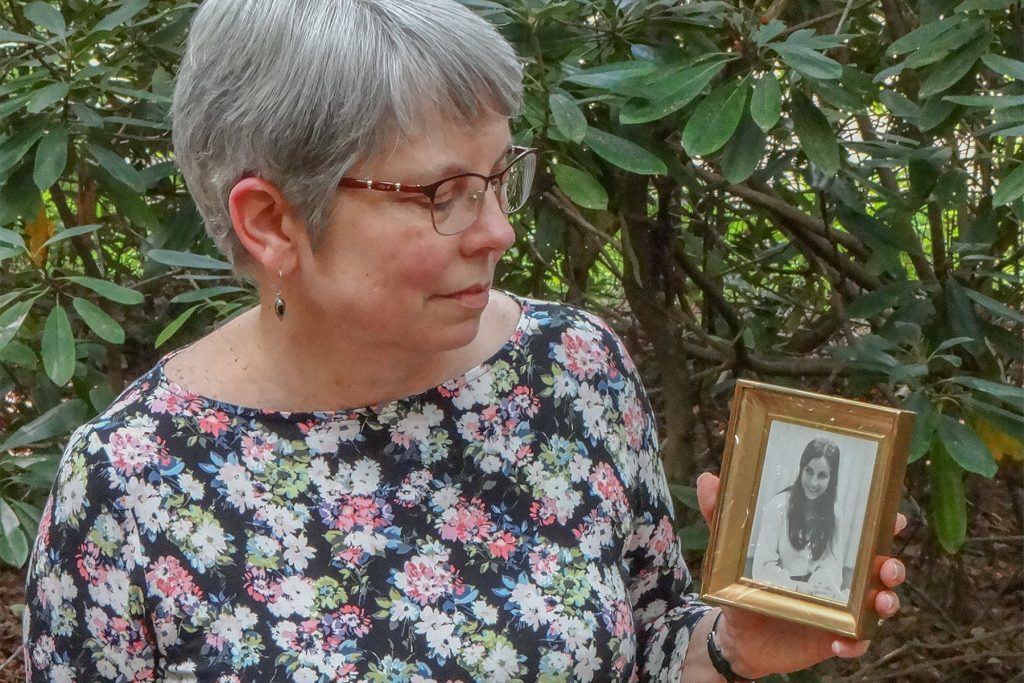
Jean Parks is an Asheville psychologist whose sister, Betsy Rosenberg, was murdered in 1975. Betsy was a student at NC State University at the time; Jean was attending Davidson College. The man convicted of killing Betsy, Gary Goldman, served more than 35 years before being paroled. Jean believes he is innocent, and met with Goldman in 2019. Here she tells her story in her own words.
I discovered that I opposed the death penalty while at a Parents of Murdered Children support group meeting in Texas. Someone from the Department of Corrections was explaining that they allow victim family members to observe executions, and that when they do, the families visit the prison the day before to get a sense of the layout. “A staff member is always with them,” he said, “offering coffee, doughnuts, and assistance.” The speaker then paused, and almost as an afterthought, said, “We don’t do anything for the families of the condemned.”
Families of the condemned. I immediately began imagining what it would be like to have a loved one about to be executed by the state, knowing there wasn’t a damn thing I could do about it. The feelings I imagined were so similar to what my family experienced after Betsy was killed: grief, rage, helplessness. I was horrified to think that our state, “We the People,” is using a form of punishment that creates new grieving families unnecessarily.
From there, I learned more about the death penalty, and more reasons to oppose it: racial inequities, how it’s administered, the prolonged process of appeals that hurts the victims’ families all over again, the economic demands it places on our society, and, of course, the fact that innocent people have been executed. On top of that, for so many, there’s just no real closure.
Once I understood that many people are surprised when a murder victim family member opposes the death penalty, I’ve spoken up for reform, then repeal of the death penalty in North Carolina. I’ve met with a governor, spoken to legislators and written lots of letters to the editors of different newspapers. I’ve also worked to forgive the man convicted of killing my sister. I recently found out, however, that he is maintaining his innocence. I don’t know how to forgive a nameless person, one whose story I don’t know.
If you believe North Carolina needs the death penalty, imagine your father, mother, brother, sister or child has been sentenced to death. Next, imagine your loved one is innocent, but you can’t prove it. An execution date has been set. Do you think we need the death penalty now?
